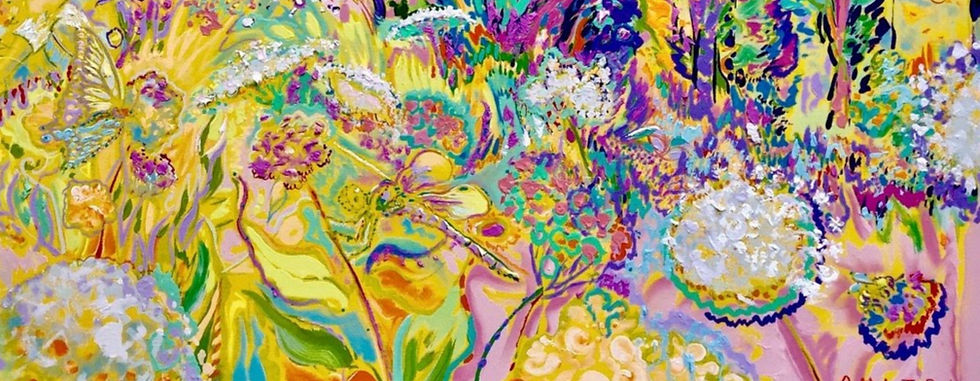Painting Stages
- Dmitri Wright
- May 10, 2025
- 3 min read
Prestage; Layering Approach; or Direct Apporach
Prestage
Preparing the Canvas Two Choices
1. Untoned Ground
2. Tone Ground
Tint or Tone (set the mood)
Color Flat or Gradation
Fields of Different Colors
Layering Approach
Underdrawing
Drawing direct on the canvas
Done with confidence taken from your multiple sketches, studies, and word sketches or illuminated memory
Or
Transferring
o Create a tracing from a final drawing or flat design to use as a wireframe – for a compositional element
Underpainting
Wash Drawing is the missing link between the Academy is a central underpinning for Impressionist work for someone who is desires more structure or someone who desires expressive freedom. It’s the foundation of the work which are often so beautiful that they can be ends in themselves. Two approaches:
· Monochromatic – to create a Value Scale (washes for setting the foundation for light and dark to create form as done in the Academy)
Or
· Large Spots of Color – to create a Value Scale or overall, Mood (washes setting the foundation of light through color Impressionist)
Glazes
Glazes are a transparent or translucent pigment with medium to influence the overall tone or mood. Can be come after an under drawing or an underpainting.
Brushstrokes
Broken Space Strokes - (Optical Mixing and Simultaneous Contrast)
Illustrative and Expressive
Illustrative strokes - Perspective and Literal interpretation
Expressive strokes - Improvisational and Abstract interpretations
Finishing Strokes
Are touch up strokes, final thoughts, detailed or broader strokes to balance out the painting they are the soloist. Finishing strokes stand as high notes singing above all the stages, they work in unison yet as a soloist they are known as your Signature Brushstroke.
Direct Approach
A direct approach usually does not have a wireframing, glazing or underpainting value scale. Can have an under drawing or none - Abstract Impressionism
One has an under drawing for guidance while the other one does not.
Under drawing
· Underdrawings can be done with charcoal, or pastel, acrylic marker or brush as guidelines to work out composition and proportions, and then color is applied
· Color Applications
o Large Spots of Color
o Broken Space Strokes - (Optical Mixing and Simultaneous Contrast )
- Illustrative strokes
- Expressive Strokes
- Final Strokes
Direct without an Underdrawing
Is without an under drawing. Is a direct alla prima painting of large and small spots of color into detailed brushstrokes, usually done for en plein air.
· Color Applications
o Large Spots of Color
o Broken Space Strokes - (Optical Mixing and Simultaneous Contrast)
- Illustrative strokes
- Expressive Strokes
- Final Strokes
In painting your subject, you are free to use an many layers or steps to achieve your goal. Studio painting allows for more detailed works, while en plein air needs to work quickly and directly.
There are so many variations to experiment with.
Layering Method | Direct Method | Plein Air Direct | ||||
Grounds | ||||||
None | x | x | x | |||
Tone Solid or Gradient | x | x | x | |||
Color Field | x | x | x | |||
Under drawing | ||||||
Transfer from Cartoon | x | |||||
Direct | x | x | ||||
Underpainting | ||||||
Mono values to create form | x | |||||
Color values to create form | x | x | ||||
Large Spots of Color | ||||||
Flat Design | x | x | x | |||
Glaze | ||||||
For mood | x | |||||
Strokes | ||||||
Illustrative | x | x | x | |||
Expressive | x | x | x | |||
Finishing | x | x | x |



Comments